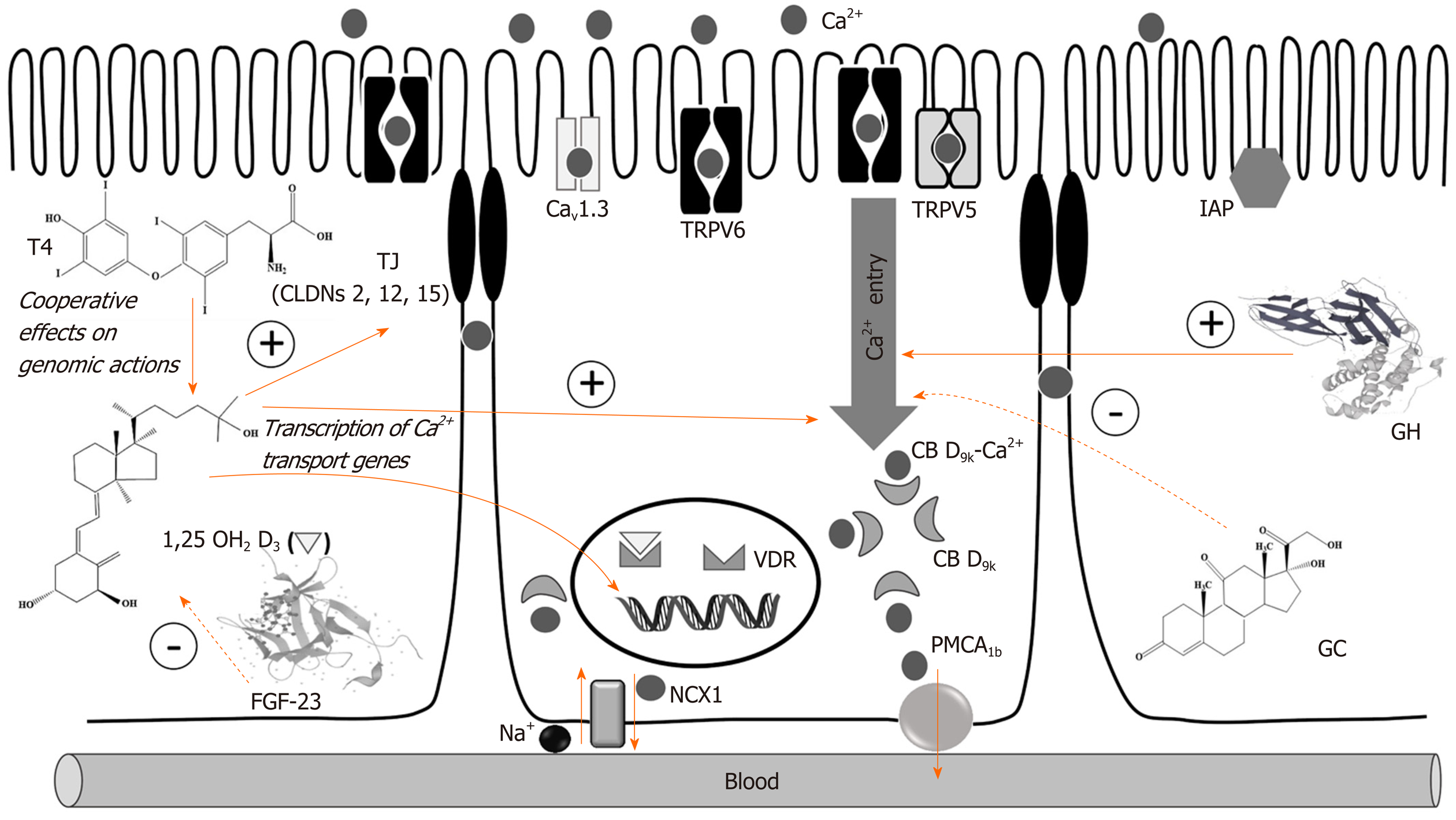Copyright
©The Author(s) 2020.
World J Gastroenterol. Jun 28, 2020; 26(24): 3344-3364
Published online Jun 28, 2020. doi: 10.3748/wjg.v26.i24.3344
Published online Jun 28, 2020. doi: 10.3748/wjg.v26.i24.3344
Figure 1 Effects of hormones on intestinal Ca2+ absorption.
Calcitriol stimulates the transcellular and paracellular absorptive pathways by inducing the expression of genes and proteins involved in Ca2+ transport and modifying the permeability of tight junctions. Thyroid hormones enhance the genomic actions of calcitriol whereas glucocorticoids inhibit the transcellular pathway by affecting the expression of Ca2+ transporting proteins. Fibroblast growth factor inhibits the intestinal Ca2+ absorption antagonizing 1,25(OH)2D3 action. Growth hormone enhances the intestinal Ca2+ absorption through vitamin D dependent and independent mechanisms. PMCA1b: Plasma membrane Ca2+-ATPase; CB9k: Calbindin 9k; Cav1.3: Ca2+ channel voltage-dependent L type alpha 1D subunit; TRPV5: Transient receptor potential vanilloid 5; TRPV6: Transient receptor potential vanilloid 6; CLDNs 2, 12 and 15: Claudins 2, 12 and 15; NCX1: Na+/Ca2+ exchanger; 1,25(OH)2D3: Calcitriol; FGF-23: Fibroblast growth factor; GH: Growth hormone; GC: Glucocorticoids; T4: Thyroxine; TJ: Tight junction; VDR: Vitamin D receptor.
- Citation: Areco VA, Kohan R, Talamoni G, Tolosa de Talamoni NG, Peralta López ME. Intestinal Ca2+ absorption revisited: A molecular and clinical approach. World J Gastroenterol 2020; 26(24): 3344-3364
- URL: https://www.wjgnet.com/1007-9327/full/v26/i24/3344.htm
- DOI: https://dx.doi.org/10.3748/wjg.v26.i24.3344













